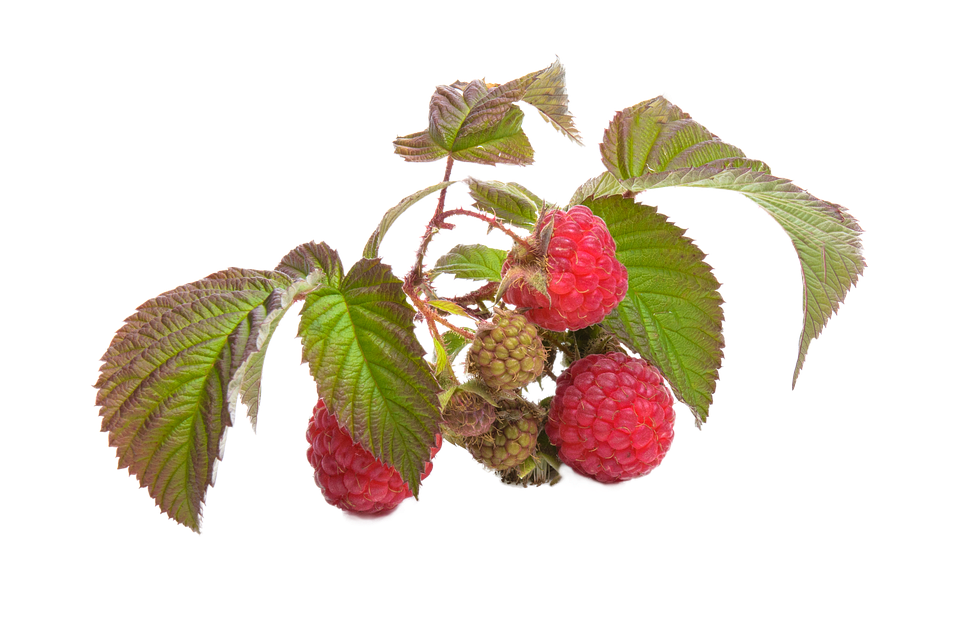The question of whether cats can safely enjoy raspberries is a common one among cat owners. While these juicy red berries are a delightful treat for humans, their suitability for our feline friends is a matter of debate. This comprehensive guide explores the potential benefits and risks associated with feeding raspberries to cats, providing detailed insights into their nutritional value, potential dangers, and best practices for responsible feeding.
Part 1: The Nutritional Profile of Raspberries

1.1. A Rich Source of Vitamins
Raspberries are a treasure trove of essential vitamins that can contribute to a cat's overall health and well-being.
- Vitamin C: Although cats can produce their own Vitamin C, additional sources from their diet can be beneficial. Vitamin C is a potent antioxidant that helps boost the immune system, protecting against cell damage and promoting overall health.
- Vitamin K: This vital nutrient is essential for blood clotting and bone health, ensuring a healthy circulatory system and strong bones.
- Vitamin A: Important for healthy vision, skin, and immune function.
1.2. Essential Minerals for Feline Health
Raspberries contain various minerals that play crucial roles in maintaining optimal feline health.
- Manganese: A key mineral involved in bone formation, metabolism, and nerve function.
- Potassium: Essential for maintaining proper fluid balance, nerve function, and muscle contraction.
- Magnesium: Plays a vital role in bone health, energy production, and nerve function.
1.3. Dietary Fibre for Digestive Health
The fibre content in raspberries can benefit a cat's digestive system, promoting regularity and preventing constipation.
Part 2: The Potential Risks of Feeding Raspberries to Cats

2.1. Sugar Content: A Double-Edged Sword
While raspberries offer nutritional benefits, their sugar content can be problematic for cats.
- Weight Gain: Excessive sugar intake can contribute to weight gain, which can lead to various health issues such as diabetes, heart disease, and joint problems.
- Dental Problems: Sugar can promote plaque buildup and tooth decay, increasing the risk of dental issues.
- Pancreatitis: In rare cases, excessive sugar can trigger pancreatitis, a severe inflammation of the pancreas.
2.2. Allergic Reactions: A Rare but Significant Concern
Although uncommon, some cats may experience allergic reactions to raspberries, which can manifest in various symptoms.
- Skin Irritation: Rashes, itching, or hives are common signs of an allergic reaction.
- Gastrointestinal Upset: Vomiting, diarrhoea, or abdominal pain can occur as a result of an allergic reaction.
- Respiratory Problems: Wheezing, coughing, or difficulty breathing may indicate an allergic reaction.
2.3. Digestive Issues: Fibre's Balancing Act
The high fibre content in raspberries can cause digestive upset in some cats, especially if they are not accustomed to eating fruits and vegetables.
- Diarrhoea: An excess of fibre can lead to loose stools.
- Constipation: In some cases, fibre can have the opposite effect, causing constipation.
- Abdominal Discomfort: Gas, bloating, or abdominal pain are potential side effects of high fibre intake.
Part 3: Feeding Raspberries to Cats: A Balanced Approach

3.1. Moderation is Key: The Golden Rule
If you decide to offer raspberries to your cat, it's crucial to practice moderation. A few small pieces, no more than once or twice a week, should be sufficient to provide any potential benefits without posing significant risks.
3.2. Introduction: A Gradual Approach
When introducing any new food, including raspberries, to your cat, start with a small amount and observe their reaction. If they show no signs of adverse effects, you can gradually increase the amount over time, allowing their digestive system to adjust.
3.3. Organic Options: Prioritizing Safety
Whenever possible, opt for organic raspberries, as they are less likely to be treated with pesticides and herbicides, which can be harmful to cats.
3.4. Seeds and Stems: Avoiding Choking Hazards
Raspberry seeds and stems can pose a choking hazard and should be removed before offering raspberries to your cat. It's best to offer only the flesh of the raspberry, ensuring their safety.
Part 4: Alternatives to Raspberries: A Wider Variety of Treats
If you're looking for healthy and safe treats for your feline friend, there are numerous alternatives to raspberries:
- Catnip: A popular and generally safe herb that can provide a stimulating and enjoyable experience for cats. It's known to induce playful behaviour and relaxation.
- Commercial Cat Treats: Many commercially available cat treats are formulated with healthy ingredients and can be a satisfying reward for your pet. Look for options that are low in sugar and high in protein.
- Cooked Chicken or Fish: Plain, cooked chicken or fish is a good source of protein and can be a delicious treat for cats. Ensure it's cooked thoroughly and free of bones before offering it to your cat.
Part 5: Consulting Your Veterinarian: Personalized Guidance
Before offering any new food to your cat, it's always best to consult with your veterinarian. They can provide tailored advice based on your cat's individual health needs, dietary requirements, and any pre-existing conditions.
Part 6: Addressing Common Concerns
6.1. Can Kittens Eat Raspberries?
It's generally not recommended to feed raspberries to kittens, as their digestive systems are more sensitive and their nutritional needs are different from adult cats. Stick to age-appropriate foods specifically designed for kittens.
6.2. Can I Give My Cat Raspberry Juice?
Raspberry juice is not recommended for cats, as it contains high levels of sugar and may cause digestive upset. Stick to water as their primary source of hydration.
6.3. Are Raspberries Toxic to Cats?
Raspberries themselves are not toxic to cats, but they can pose risks due to their sugar content and potential for allergic reactions. Moderation and observation are crucial.
6.4. What Are the Signs of a Raspberry Allergy in Cats?
Signs of a raspberry allergy in cats may include skin irritation, vomiting, diarrhoea, and respiratory problems. If you notice any of these symptoms after your cat has eaten raspberries, seek veterinary attention immediately.
6.5. Can I Feed My Cat Raspberries Every Day?
While raspberries can be a healthy treat for cats, it's best to limit them to a few small pieces no more than once or twice a week. Excessive consumption of raspberries can lead to weight gain and other health problems.
6.6. What Happens if My Cat Eats a Lot of Raspberries?
If your cat eats a large quantity of raspberries, they may experience digestive upset, such as diarrhoea, vomiting, or abdominal pain. In rare cases, excessive sugar intake could lead to pancreatitis. If you are concerned about your cat's health after eating raspberries, contact your veterinarian.
Part 7: A Final Note: Observing Your Cat's Reactions
Even if your cat enjoys raspberries, it's crucial to observe them closely after eating them. Look out for any signs of discomfort or adverse reactions. If you notice anything unusual, discontinue feeding raspberries and consult your veterinarian.
Remember, every cat is unique, and what works for one may not work for another. By practicing moderation, introducing raspberries gradually, and paying close attention to your cat's responses, you can determine if these juicy berries are a safe and enjoyable treat for your feline companion.
Everyone is watching
-

Are Cat Ribs Flexible? Understanding Their Anatomy
CATS & KITTENSThis article delves into the fascinating world of feline anatomy, exploring the flexibility of cat ribs and ho...
-

Can Cats Eat Bananas? (Everything You Need to Know)
CATS & KITTENSThis article dives into the intriguing question of whether cats can safely enjoy the sweet, yellow fruit, bana...
-

Cat Lifespan: How Long Do Cats Live?
CATS & KITTENSThis comprehensive guide explores the factors influencing the lifespan of our feline companions, providing ins...
-

Can Cats Get COVID-19? What You Need to Know
CATS & KITTENSThis article will delve into the fascinating world of feline COVID-19 susceptibility. We'll explore whether ca...
-

Can Cats Eat Eggs? A Complete Guide to Egg Safety for Your Feline Friend
CATS & KITTENSWhen it comes to treating our furry companions, we all want to ensure we're doing what's best for them. Eggs...
